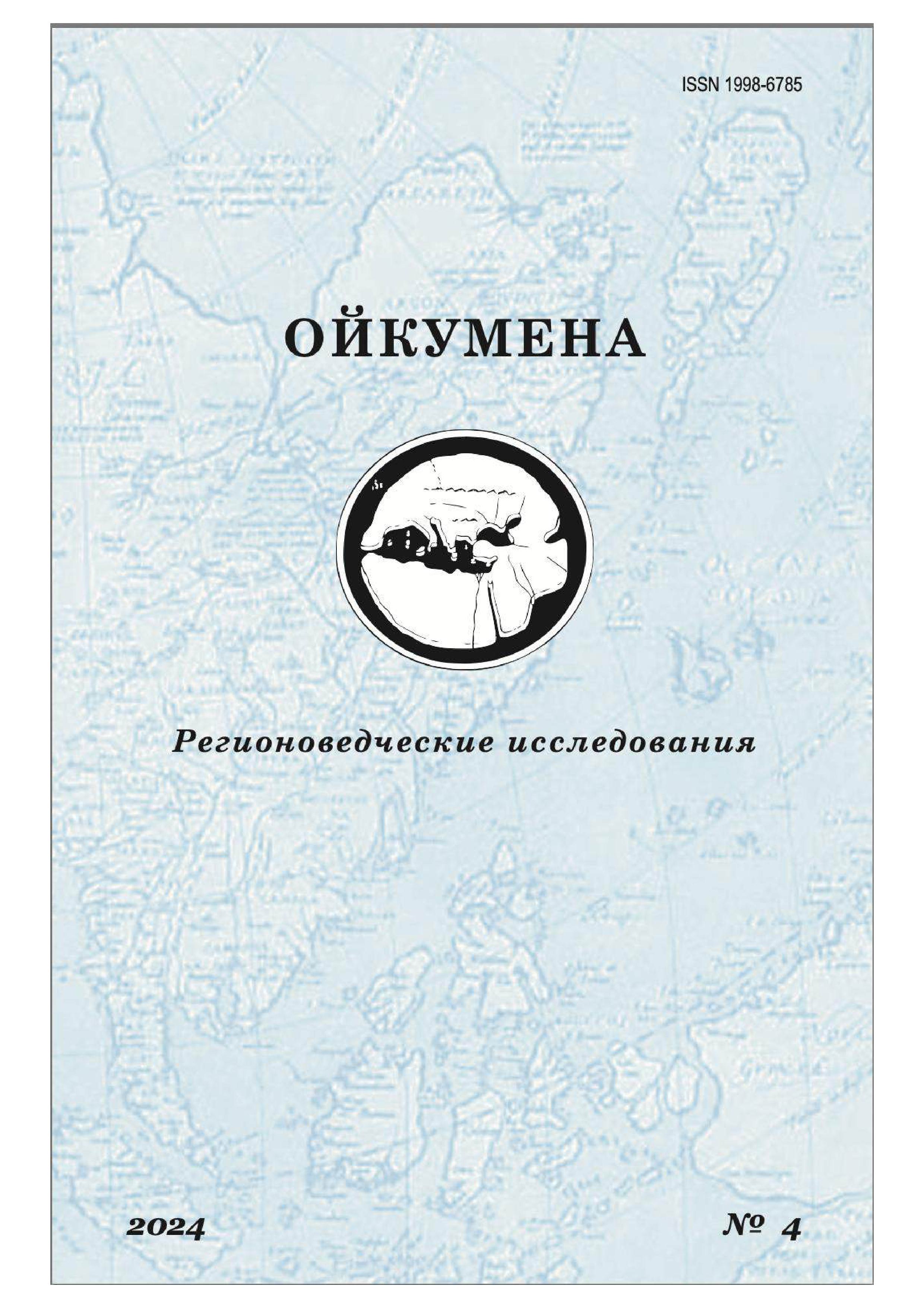The article presents the experience of using the method of directed associations using evaluative adjectives to study educational video blogging. Educational videos selected on the basis of recommendations from teachers and students participating in the study were investigated by the experts. The latter were asked to describe their impressions of the video by means of three adjectives. Finally, 341 adjectives were collected for 236 educational videos. The adjec- tives were recorded into 4 semantic groups related to the length, content, emotionality of the video and the peculiarity of the presentation of information. Quantitative and qualitative analysis methods were subsequently applied to them. The conclusion provides findings on the possibilities and limitations of using the associative method.
projective method, directed associations, evaluative adjectives, educational video blogging, teacher bloggers
1. Abrosimova E. E. Educational potential of the modern video blogosphere // Ojkumena. Regional researches. 2022. № 4 (63). P. 20–26 (In Russ.). DOI: https://doi.org/10.24866/1998-6785/2022-4/20-26; EDN: https://elibrary.ru/MXJUBI
2. Abrosimova E. E., Filipova A. G. Rating of popular video bloggers: the view of modern teenagers // Ojkumena. Regional researches. 2022. No. 2 (61). P. 131–137. (In Russ.). DOI: https://doi.org/10.24866/1998-6785/2022-2/131-137; EDN: https://elibrary.ru/HKRCZI
3. Abrosimova E. E., Filipova A. G., Ardalyanova A.Yu. Video blogging through the eyes of children and adults: sociological analysis. St. Petersburg, 2019. 230 p. (In Russ.). EDN: https://elibrary.ru/VAYFZS
4. Arutyunova N. D. Language and the world of man. M.: Languages of Russian Culture, 1999. 896 p. (In Russ.). EDN: https://elibrary.ru/YLAWAR
5. Belova N. N. Semantics of evaluation in adjectives: abstract. dis....cand. philol. Sci. M., 2011. 27 p. (In Russ.). EDN: https://elibrary.ru/QHLINJ
6. Bychkova M. B. Modern video blog: reasons for popularity and genre diversity Bulletin of Tver State University. Series: Philology. 2019. No. 1 (60). P. 127–131 (In Russ.). EDN: https://elibrary.ru/WTADSL
7. Ivanova N. A. Application of the free association method in empirical sociological research // Bulletin of St. Petersburg State University. Series 12. 2013. Issue 3. P. 116–122. (In Russ.).
8. Ilyina V. A. Associative experiment as a way of forming a semantic field // Bulletin of Moscow State Regional University. Series Linguistics. 2010. No. 5. P. 7–10. (In Russ.). EDN: https://elibrary.ru/NCTQVN
9. Study: Almost half of Russians watch video reviews before shopping and prefer chatbots to phone calls to companies //Rossiyskaya Gazeta. URL: https://rg.ru/2023/06/29/issledovanie-pochti-polovina-rossiian-smotrit-videoobzory-pered-pokupkami-i-predpochitaiut-chat-boty-telefon-nym-zvonkam-v-kompanii.html (accessed 04.07.2024). (In Russ.).
10. Krasova E. Specifics of an associative experiment in the study of politicians' images // Relga. 2010. No. 13 (211). URL: http://www.relga.ru/Environ/WebObjects/tgu-www.woa/wa/Main?textid=2706&level1 (accessed 04.07.2024) (In Russ.).
11. Krasova E. Yu. Brand image of Voronezh in the assessments of citizens // Relga. 2012. No. 17. URL: http://www.relga.ru/Environ/WebObjects/tgu-www.woa/wa/Main?textid=3385&level1=-main&level2=articles (accessed 04.07.2024). (In Russ.).
12. Nikolaeva E. I., Belova S. S., Trenin E. M. Verbal association and emotional word. Psychological and psychophysiological analysis of the emotional significance of words // Dictionary of paradigmatic associations and dictionary of coincidences of associative fields of words of different emotional significance: monograph in 2 vol. Vol. 1. St. Petersburg, 2014. 199 p. (In Russ.). EDN: https://elibrary.ru/THMVTV
13. Pautova L. A. Associative experiment: an experience of sociological application // Sociology: Methodology, methods, mathematical models. 2007. No. 24. P. 149–168. (In Russ.). EDN: https://elibrary.ru/KVKJCR
14. Council of teachers-bloggers // Ministry of Education of the Russian Federation. URL: https://edu.gov.ru/blogsovet/ (accessed 04.07.2024). (In Russ.).
15. Filipova A. G. Skripnikova E. M. Specifics of Educational Video Blogging as a Tool for a School Teacher // Bulletin of the Volgograd State Pedagogical University. 2023. No. 7 (180). P. 48–56. (In Russ.).
16. Filipova A. G., Skripnikova E. M., Abrosimova E. E. Features and Types of Self-Presentations in Educational Video Blogging // Sociodynamics. 2023. No. 11. P. 46–62. (In Russ.). DOI: https://doi.org/10.25136/2409-7144.2023.11.69015; EDN: https://elibrary.ru/HAKZVE
17. FOM: Trust is a Key Indicator When Choosing an Information Source // Sostav.ru. URL: https://www.sostav.ru/publication/rossiyane-bolshe-vsego-doveryayut-traditsionnym-smi-opros-fom-39274.html (accessed 4.08.2024). (In Russ.).
18. Shestopal E. B., Novikova-G M. V. Perception of images of twelve leading politicians of Russia (Psychological and linguistic analysis). // Polis. Political research. 1996. No. 5. P. 168–191. (In Russ.). EDN: https://elibrary.ru/ESCNNR
19. Shmatko N. A., Kachanov Yu. L. Territorial identity as a subject of sociological research // Sociological research. 1998. No. 4. P. 94–98. (In Russ.). EDN: https://elibrary.ru/SZEOMB
20. Bardakcı S. Exploring high school students' educational use of YouTube // International Review of Research in Open and Distributed Learning. 2019. № 20 (2). P. 260–278. https://doi.org/10.19173/irrodl.v20i2.4074
21. Debus M. Handbook for Excellence in Focus Group Research. Washington, DC: Academy forEducation Development, 1986. 75 p.
22. Meeder R. Videoblogging in Education: The new wave of interactive educational television, 2008. URL: https://www.academia.edu/1519347/Videoblogging_in_Education_The_new_wave_of_inter-active_educational_television (accessed 04.07.2024).
23. Pattier D. Teachers and YouTube: The use of video as an educational resource | // Ricerche Di Pedagogia E Didattica. Journal of Theories and Research in Education. 2021. № 16 (1). P. 59–77. https://doi.org/10.6092/issn.1970-2221/11584











